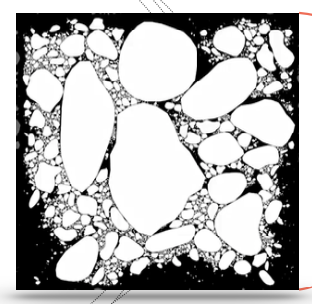Our SASIP Webinar #5 with Jean-Pierre Auclair on ‘Studying sea ice dynamics and wave-ice interactions in the marginal ice zone’ took place on Thursday 16 December at 3pm CEST.
Check the recording of the meeting :
In his talk, Jean-Pierre will showed how the Marginal Ice Zone (MIZ) is a highly dynamic region between the open ocean and the inner ice pack. The ice over this region is subjected to waves, introducing new forces but also changing the ice from a cohesive material to a mobile collection of floes. Until recently, the challenges posed by in-situ ice measurements in the MIZ prevented a detailed characterization of changes in the ice cover. The abruptly changing conditions over short distances have also prevented detailed numerical simulations. Recent developments in observational and computational capabilities allow further investigations of the physical processes for ice formation and wave-ice interactions in the MIZ. Many features of the MIZ remain to be explained and quantified. This presentation will focus on rapid ice movement near the ice edge and ice thickening under wave pressure. In order to investigate these and support future field and numerical studies, simulations of waves causing ice compaction and of the ice edge jet are performed to detail the expected impacts of waves on sea ice. The addition of the wave radiative stress allows the generation of realistic thickness profiles near the ice edge, provided that the sea ice strength is modified to represent the difference between pack ice and thinner ice. With the same modifications, obliquely incident waves on the ice edge produced an ice edge jet with a range of characteristics depending on wave parameters and modeled interactions. In order to build on this, a new floe-resolving model will be used. This model currently simulates floe drift and collisions, and floe breakup by percussion or by waves will be added. Using multiple simulations from this model to complement observations, parametrizations for the bulk properties of broken sea ice will be developed.




